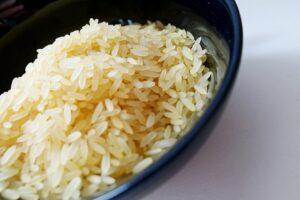Rice price trends: why is it getting more expensive and how does it affect us?
Rice, as a staple food, has recently experienced significant price fluctuations, not only in Hungary but also worldwide. The Japanese government is trying to ease the price increase by releasing reserve stocks, while in Hungary, Minister of National Economy Márton Nagy mentioned rice among the products to which the price monitoring system would be extended. But what is behind the price increase, and how does this affect Hungarian consumers? – writes VG.
Developments in the global rice market

The change in the price of rice can be traced back to several factors. In Japan, for example, supply problems and disruptions in the distribution system caused prices to rise, so the government intervened and reached into reserves to reduce consumer prices. In China, demand is declining, partly due to demographic changes and partly to changing dietary habits: younger generations increasingly prefer Western wheat-based foods over traditional rice consumption.
How does this affect Europe and Hungary?
Although changes in the Asian rice market may have a long-term impact on European markets, rice prices in Hungary are fundamentally influenced not by events in the Far East, but by European production, logistics and retail processes. According to data from the Central Statistical Office, the price of husked, unpolished rice was 727 forints per kilogram in October 2024, while it increased to 753 forints by January 2025. This increase is partly due to inflation and partly to rising logistics and production costs.
Specifics of the Hungarian rice market
In Hungary, the annual per capita rice consumption is around 6.8 kilograms, which is outstanding in the Central European region. An interesting feature of the Hungarian market is that our country not only imports, but also exports rice. In 2024, we exported 5.35 million dollars worth of rice abroad, while we imported 40.5 million dollars worth, mainly from European countries.
Related news
Related news
ZEW: Economic expectations worsened in Germany and the euro area in February
🎧 Hallgasd a cikket: Lejátszás Szünet Folytatás Leállítás Nyelv: Auto…
Read more >NKFH: inspections focus on discount prices and customer deception
🎧 Hallgasd a cikket: Lejátszás Szünet Folytatás Leállítás Nyelv: Auto…
Read more >









